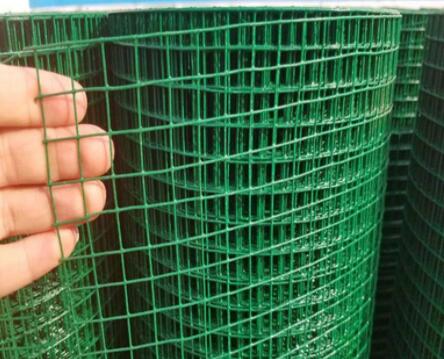Types of Screen Wire A Comprehensive Guide
Screen wire is an essential component in various applications, providing protection from insects while allowing light and air to pass through. The versatility of screen wire can be seen in its use for windows, doors, porches, and even in agricultural settings. With numerous types available on the market, understanding the differences will help you choose the best fit for your needs. This article will explore the main types of screen wire, their materials, applications, and benefits.
1. Fiberglass Screen Wire
Fiberglass screen wire is one of the most popular choices due to its affordability and resistance to rust and corrosion. Made from woven strands of fiberglass coated with a protective vinyl layer, this type of screen wire is lightweight and easy to install. It comes in various mesh sizes, allowing for adjustable airflow and visibility levels.
Applications Fiberglass screen wire is commonly used for windows and doors in residential settings. It is particularly suitable for areas with high humidity and moisture, as it does not rust or corrode like metal screens.
Benefits The key benefits of fiberglass screen wire include its durability,UV resistance, and low maintenance requirements. It also comes in a variety of colors to match home aesthetics.
2. Aluminum Screen Wire
Aluminum screen wire is a popular choice due to its strength and durability. Unlike fiberglass, aluminum offers added security and is less prone to damage from pets or harsh weather. It is available in both black and silver finishes, allowing for customization based on personal preference.
Applications Aluminum screen wire is often used in doorways, patios, and porches, where a robust material is needed. It is particularly advantageous in regions prone to severe weather conditions.
Benefits Aluminum screen wire is highly resistant to rust, making it suitable for coastal areas. It also provides excellent visibility and airflow while being easy to clean and maintain.
3
. Stainless Steel Screen WireFor those looking for the ultimate strength and durability, stainless steel screen wire is the way to go. Made from high-quality stainless steel, this type of wire offers exceptional resistance to rust, corrosion, and extreme temperatures.
types of screen wire

Applications Stainless steel screen wire is ideal for commercial and industrial applications, where security and longevity are paramount. It is frequently used in warehouses, factories, and high-traffic areas.
Benefits The significant benefits of stainless steel screen wire include its unmatched strength and lifespan. It provides an effective barrier against even the smallest insects while maintaining superior visibility and airflow.
4. Pet Resistance Screen Wire
Pet resistance screen wire is specifically designed for homes with pets. This screen is made from tightly woven fibers that can withstand scratching and clawing. It offers the durability needed to prevent tears and punctures caused by energetic pets.
Applications This type of screen wire is perfect for homes with dogs, cats, or other pets, often installed in doors and low windows where pets are likely to jump or scratch.
Benefits The primary benefit of pet resistance screen wire is its durability against animal damage. It also provides ample airflow and visibility, ensuring your home remains comfortable and bright.
5. Solar Screen Wire
Solar screen wire is specially designed to reduce heat and glare from the sun while still allowing light and air to flow through. This screen typically comes in dark colors, which helps to absorb sunlight and block harmful UV rays.
Applications Ideal for southern-facing windows or porches, solar screen wire is widely used in residential and commercial buildings where energy efficiency is a concern.
Benefits The advantages of solar screen wire include significant reductions in indoor heat, diminished glare, and enhanced privacy without sacrificing airflow. This type of screen can lead to lower energy costs by decreasing reliance on air conditioning.
Conclusion
Choosing the right type of screen wire is essential for ensuring both functionality and aesthetic appeal in your home or business. By understanding the varied options—including fiberglass, aluminum, stainless steel, pet resistance, and solar screens—you can make an informed decision based on your specific needs. Whether you are trying to keep insects out, control sunlight, or withstand the rigors of pet activity, there is a screen wire solution tailored for you. Investing in quality screen wire not only enhances comfort and convenience, but also contributes to the overall longevity and maintenance of your living spaces.

















